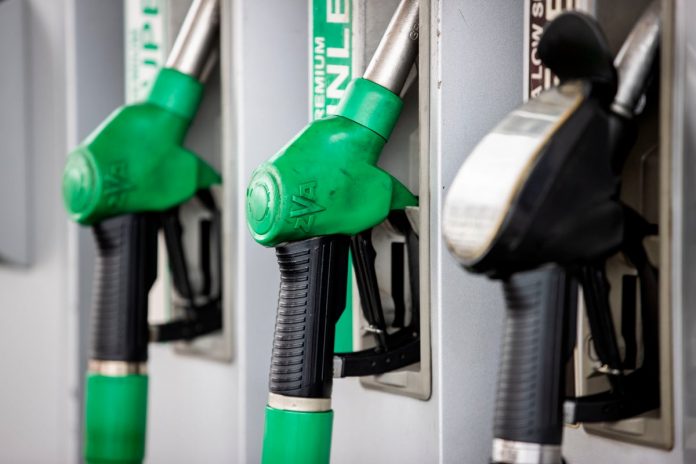Average price of a litre of petrol rises from 135.87p on Friday to 136.59p on Sunday, with further jump expected.
Pump prices for fuel in the UK have reached their highest level in eight years as petrol stations run dry amid panic buying, with a further jump expected as wholesale energy costs continue to surge.
Health workers should be given priority access to fuel in UK, says senior doctor
Figures from the RAC show the average price of a litre of petrol rose from 135.87p on Friday to 136.59p on Sunday as motorists scrambled to fill up their vehicles, with the cost of petrol hitting the highest level since September 2013.
As queues continued to form at forecourts on Monday after a chaotic weekend, the motoring group warned prices could rise further this autumn as the global oil price soars to the highest level in three years.
It said some retailers had also taken advantage of panic-buying by ramping up prices, but reiterated there was no shortage of fuel at refineries and called on motorists only to buy what they immediately need.
“When it comes to pump prices, it is a pretty bleak picture for drivers. With the cost of oil rising and now near a three-year high, wholesale prices are being forced up which means retailers are paying more than they were just a few days ago for the same amount of fuel,” said Simon Williams, the RAC’s fuel spokesperson.
“We might yet see higher forecourt prices in the coming days, irrespective of the current supply problem.”
Oil prices on the global energy markets rose for a fifth straight day on Monday with the price of Brent crude hitting almost $80 (£58) a barrel, the highest since October 2018, amid supply concerns and rising demand across the world after lockdown.
It comes as the government faces pressure over its management of the economy as households brace for a difficult winter of rising living costs, as ministers prepare to cut universal credit benefits and increase national insurance tax on workers.
Labour said the combined effects of the energy crisis, benefit cuts and tax rises had caused a “perfect storm” that would disproportionately hurt working families. Jonathan Reynolds, the shadow work and pensions secretary, said: “It is not too late for the government to change course, cancel their cut to universal credit and back struggling families this winter.”
Figures from HSBC UK suggested that Friday was the busiest day for spending at petrol stations in recent memory. Payments increased by 50% from the same day a week earlier, according to the bank’s data, with consumers spending just over £30 on average compared with just over £20 on average for a normal Friday.
Economists said that rising petrol prices would add to inflationary pressures, while persistent fuel shortages could knock consumer confidence and drag down economic activity if households and businesses started to restrict their travel.
It comes after the Bank of England warned last week that higher energy costs would push inflation above 4% this winter, with the gauge for the cost of living expected to remain at persistently high levels until the middle of next year.
George Buckley, an economist at the Japanese bank Nomura, said: “We remain concerned about the risk that higher energy prices, lower confidence, and rising virus case numbers could yet scupper the nascent [UK] economic recovery.”
(UK Guardian)


















